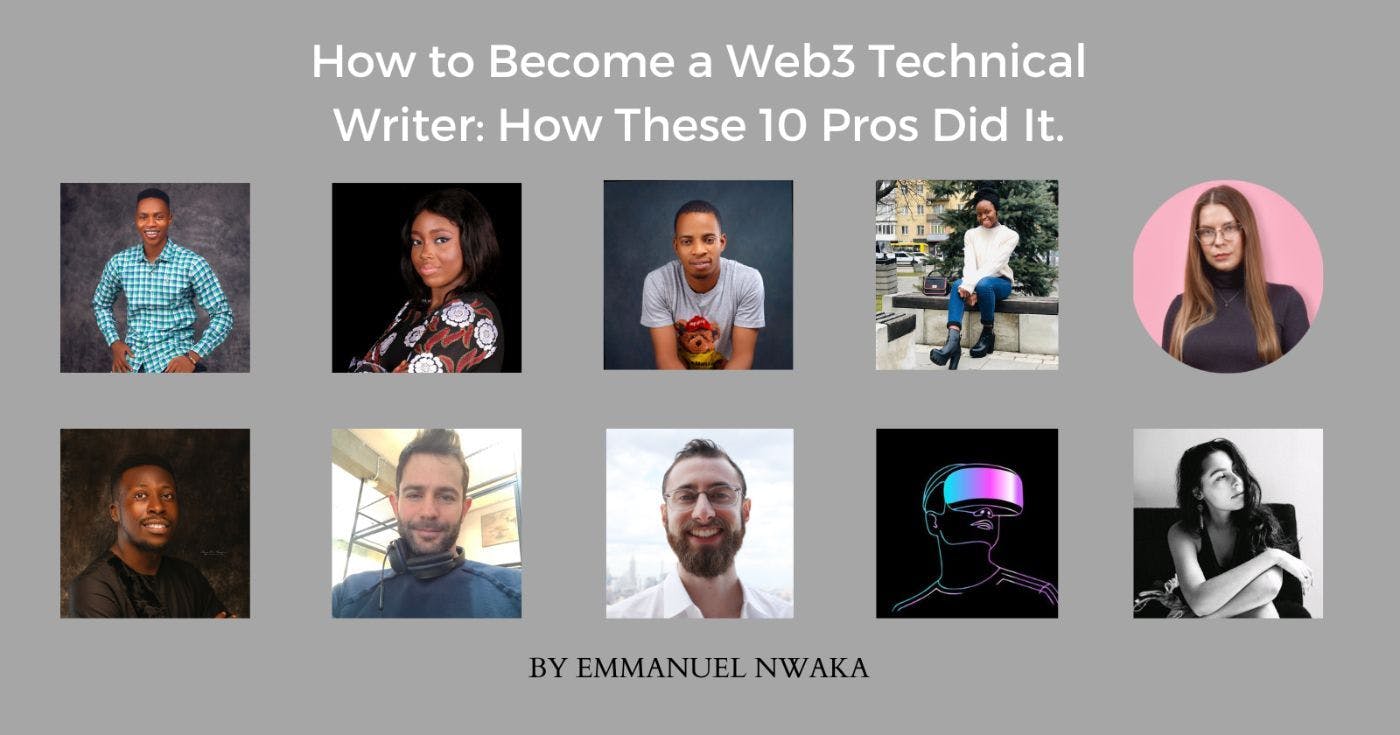3,576 reads
How to Become a Web3 Technical Writer: How These 10 Pros Did It.
by
September 14th, 2022
Audio Presented by

Content Marketing Strategist. Well versed in Blockchain, Cryptocurrency and Web3.
About Author
Content Marketing Strategist. Well versed in Blockchain, Cryptocurrency and Web3.
